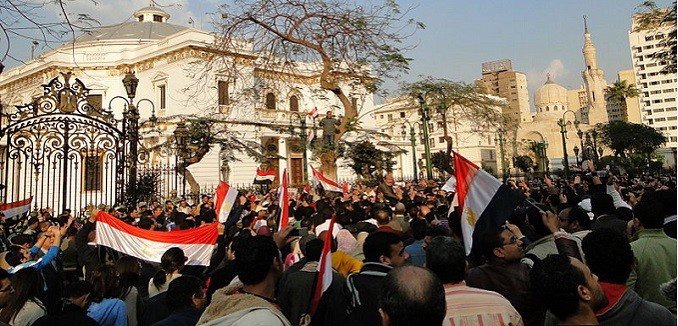Political, economic, and diplomatic missteps have left Egypt’s President Mohamed Morsi and his government scrambling to contain interlinked crises that threaten to turn the country into a failed state. A series of power grabs early after Morsi’s election – which saw the Muslim Brotherhood-linked president and his allies centralize power and push through a new constitution grounded in Islamic law – triggered domestic outrage and international concerns. Meanwhile Cairo found itself unable to stem capital flight from the country, and Egyptian foreign currency reserves eventually dropped below critical levels.
The president now finds himself in a kind of catch-22. He lacks the political authority to make the necessary financial reforms that will stabilize the Egyptian economy, and without stabilizing the Egyptian economy he is likely to see further erosion in his political authority. In January, Morsi declared a state of emergency in three cities to curb violent protests. Recent weeks have nonetheless seen ongoing demonstrations against the Muslim Brotherhood, including a riot Friday that left at least 130 people hospitalized. Yesterday, Egypt’s chief prosecutor ordered the arrest of five political activists linked to the unrest, including a leading Arab Spring blogger, on charges of using social media to incite violence:
Those ordered arrested included Alaa Abd El-Fattah, a leading blogger who played a role in the protests that led to the overthrow of president Hosni Mubarak in 2011. The five were also banned from travel. They were accused of inciting “aggression against people, the destruction of property and disturbing civil peace in the events that erupted during the protest in front of the Muslim Brotherhood’s headquarters”, the statement said. At least 130 people were hospitalized after the violence near the Muslim Brotherhood’s Cairo headquarters last Friday.
The Friday clashes were between nearly 1,000 government protesters and a roughly equal number of Muslim Brotherhood supporters, many bused into the area. No arrests have been ordered of any of the Muslim Brotherhood supporters countering the anti-Brotherhood protesters. Morsi is threatening more crackdowns to restore at least political stability, if not legitimacy.
Morsi’s government has sought to stabilize Egypt’s economy via outside aid, but Germany and the European Union have been reluctant to provide assistance due to concerns related to democratic liberties, while the International Monetary Fund has conditioned aid on financial reforms that Morsi – in the aftermath of his political gambits – lacks the political capital to secure. Planned U.S. assistance, which comes at a time of generally souring relations between Washington and Cairo, will, according to experts, be “a paltry sum that’s not going to make much of a difference.”




